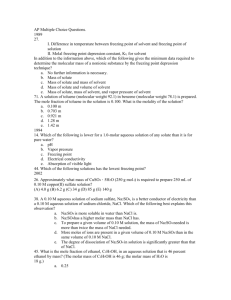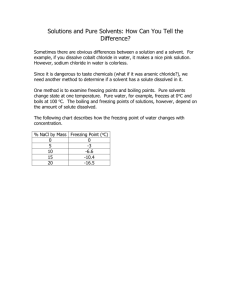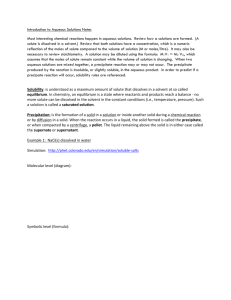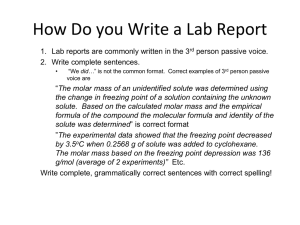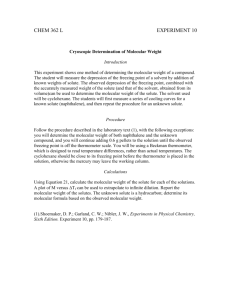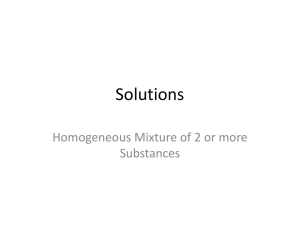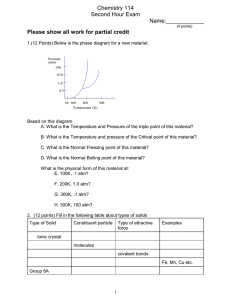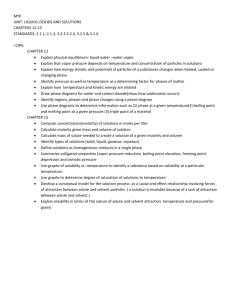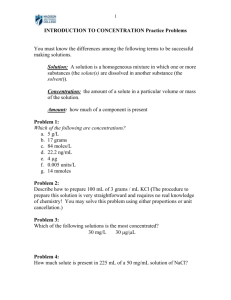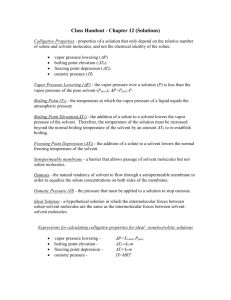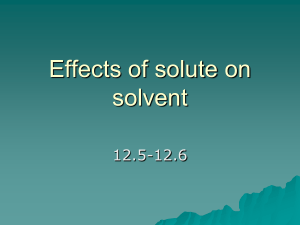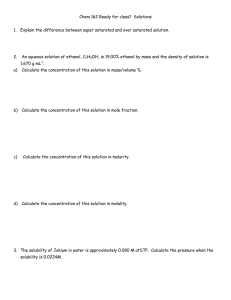AP Multiple Choice Questions. 1989 27. I. Difference in temperature
advertisement
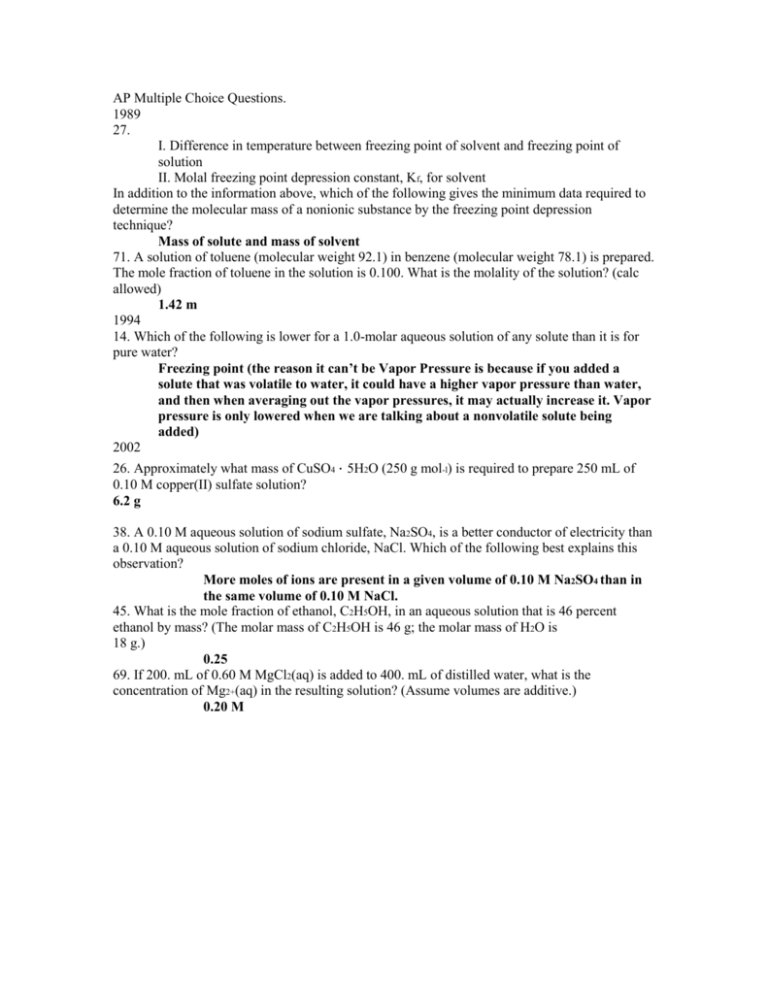
AP Multiple Choice Questions. 1989 27. I. Difference in temperature between freezing point of solvent and freezing point of solution II. Molal freezing point depression constant, Kf, for solvent In addition to the information above, which of the following gives the minimum data required to determine the molecular mass of a nonionic substance by the freezing point depression technique? Mass of solute and mass of solvent 71. A solution of toluene (molecular weight 92.1) in benzene (molecular weight 78.1) is prepared. The mole fraction of toluene in the solution is 0.100. What is the molality of the solution? (calc allowed) 1.42 m 1994 14. Which of the following is lower for a 1.0-molar aqueous solution of any solute than it is for pure water? Freezing point (the reason it can’t be Vapor Pressure is because if you added a solute that was volatile to water, it could have a higher vapor pressure than water, and then when averaging out the vapor pressures, it may actually increase it. Vapor pressure is only lowered when we are talking about a nonvolatile solute being added) 2002 26. Approximately what mass of CuSO4 ⋅ 5H2O (250 g mol-l) is required to prepare 250 mL of 0.10 M copper(II) sulfate solution? 6.2 g 38. A 0.10 M aqueous solution of sodium sulfate, Na2SO4, is a better conductor of electricity than a 0.10 M aqueous solution of sodium chloride, NaCl. Which of the following best explains this observation? More moles of ions are present in a given volume of 0.10 M Na2SO4 than in the same volume of 0.10 M NaCl. 45. What is the mole fraction of ethanol, C2H5OH, in an aqueous solution that is 46 percent ethanol by mass? (The molar mass of C2H5OH is 46 g; the molar mass of H2O is 18 g.) 0.25 69. If 200. mL of 0.60 M MgCl2(aq) is added to 400. mL of distilled water, what is the concentration of Mg2+(aq) in the resulting solution? (Assume volumes are additive.) 0.20 M
